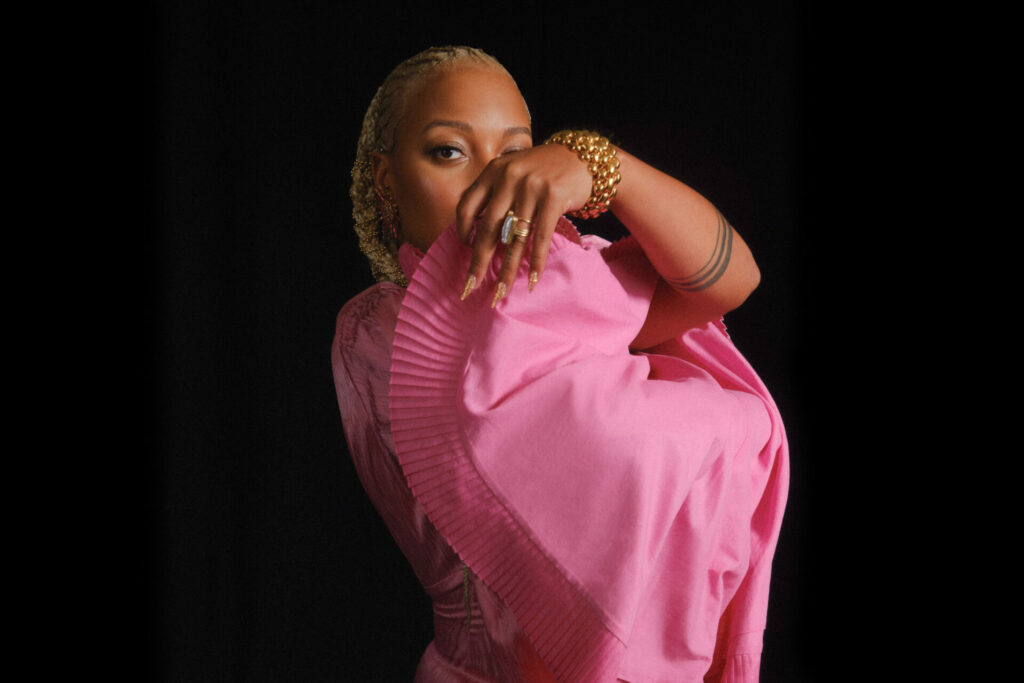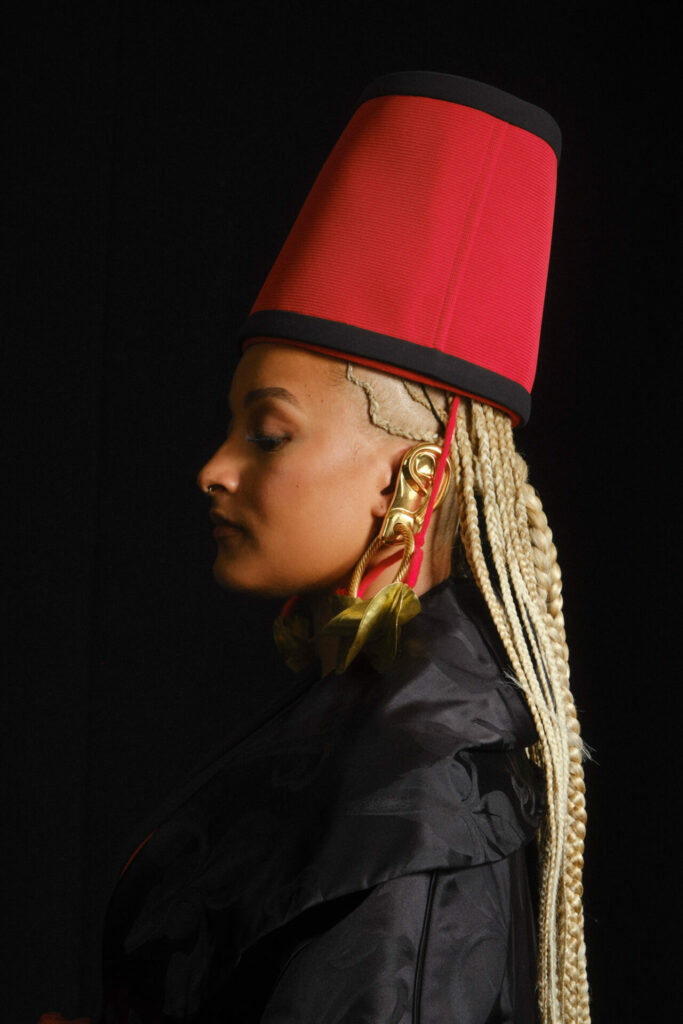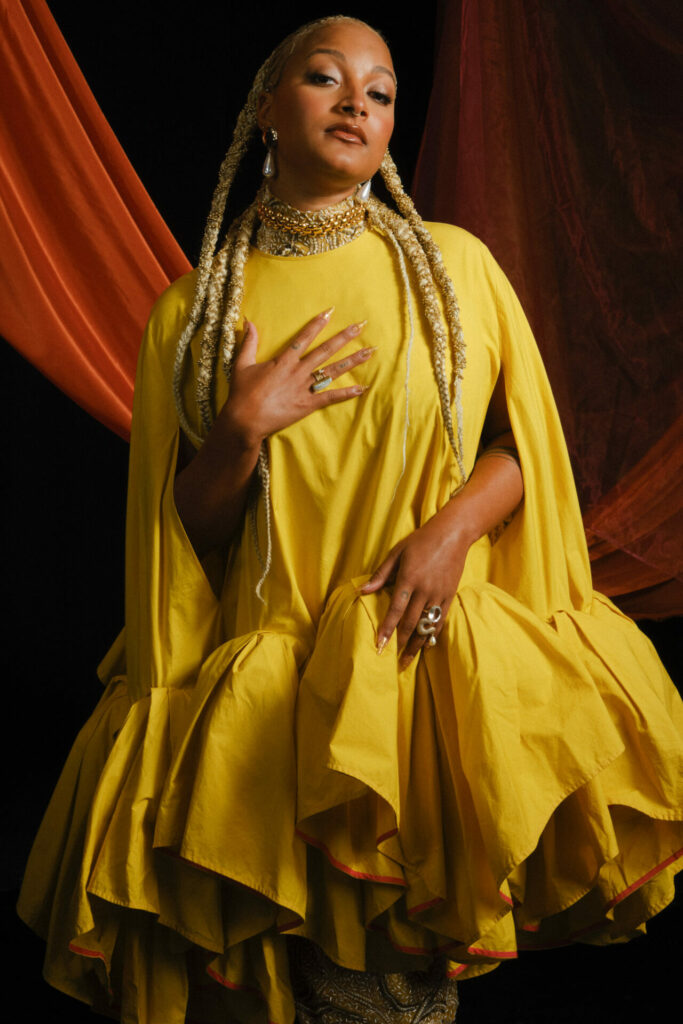String theory: Nubya Garcia
On new album ‘Odyssey’, Nubya Garcia conducts sweeping strings over her innovative saxophone playing to mark herself out as a unique star of the UK jazz world

There are clichéd ‘difficult second albums’, and then there are those where you start almost from scratch. The difficulty with jazz prodigy Nubya Garcia’s second LP, Odyssey, came when she decided that this new batch of songs she had written needed the sweeping majesty of a string section, before deciding to learn how to write and conduct it all herself.
“It was a big step,” she laughs on a baking hot summer’s day in north London, her voice projecting equal amounts of pride and disbelief in how far she pushed herself in learning how to write for strings and then conduct a 12-piece orchestra for the very first time.
“I’m so proud of doing it,” she says with a beaming smile of her second album. “That’s part of discovering what you’re going to make. I didn’t write a list and say that these were all the things that I was going to do. The music started coming and flowing out, and within that I started wondering what it would sound like with this section. I subconsciously knew that I wanted strings and the epic, cinematic sound that they’re associated with, but I just hadn’t named it yet.”
After getting her start on the violin (“I hated it!”), Garcia laughs that she “went in on the recorder” at school, before graduating to the clarinet and then the saxophone. It was only when she noticed a certain space and airiness to the demos she had laid down with her band for Odyssey that she became drawn back to the idea of strings.
Trained at the lauded Trinity Laban Conservatoire of Music and Dance in Greenwich — also the breeding ground of fellow jazz luminaries Shabaka Hutchings and Moses Boyd, as well as Fela Kuti — and at the vital youth club Tomorrow’s Warriors, Garcia’s debut album Source saw her become a pivotal member of the London jazz scene and a phenomenal sax player. “The difference when I started saxophone was crazy in terms of enjoyment,” she reflects now. “It felt cool and I felt like it was part of me. You know the spark and you can see it in people who start an instrument. You can see when people want to practise and want to get better, and that happened for me.”
Through this instrument, she has sold out the legendary Ronnie Scott’s multiple times, played Glastonbury and the BBC Proms and won a Mercury Prize nomination. “Source changed my life, and I didn’t think it would,” says Garcia. “I didn’t expect it, especially in a bloody pandemic! Everyone told me to wait, but I’d been waiting for two years already. I didn’t expect it to go where it went, and as a result I took my time crafting something that would elevate me from that point.” She asked herself, ‘What have I done, learned, enjoyed, hated, journeyed through since then?’ The results are shown on the majestic, thrilling Odyssey.

As with her debut album, Odyssey began with Garcia building ideas up from scratch with her longtime band — Joe Armon-Jones (keys), Daniel Casimir (bass) and Sam Jones (drums) — in a familiar and fluid environment, working again with producer Kwes. Anchored by lead single ‘Solstice’ and its slippery, gorgeous double bass line, the album doesn’t abandon the energy shown on Source, but it’s the strings that flow throughout the record that give it its distinctive character. Phoning up her old arranging teacher from university in a panic, Garcia was given a fast conducting lesson before entering Church Studios with the Chineke! Orchestra, the first European orchestra made up of majority Black and ethnic minority members.
“The overall energy that I was trying to get across was a sense of expansiveness,” she says. “I wanted extreme beauty in the sound, and really pouring into each note. I wanted it to sound as one, a really thick one.”
The album is also fleshed out and given a distinctive quality through its guest vocalists, Esperanza Spalding, Richie Seivwright and Georgia Anne Muldrow, who bring hugely powerful verses to some of the album’s defining moments. Garcia has admired all three of these Black women for more than a decade and says she “wanted to share the voice of other people within and alongside my music”.
She adds, “With lyrics, you are being very purposeful. Language is so powerful, and I’ve understood that I don’t have the command that I would want of my language in the way that I do my musical ability.”
As well as the changes it brings on the recorded version of Odyssey itself, the multiple leaps of faith taken here also feel emblematic of Garcia’s limitless vision and commitment to constantly evolving. It’s true for her live show too, which is ever-changing and malleable to the circumstances, venues and energies that she plays to.
“When you’re very sensitive, as artists are, you feel what’s needed,” she posits. “I’m like a DJ who’s reading the room. I’m changing the set every single night because why not? It doesn’t panic me, and we don’t have any doubts.”

Garcia describes this ethos as a sensibility built into her from her schooling and from the jazz world as a whole. “There’s a shared language and a metaphorical book of standards, so I could jump on stage with a band of strangers in Japan and we could play tunes together, and they wouldn’t sound nearly the same as if I played them with my band,” she smiles, clearly delighted by the fluid nature of her chosen genre. “It’s always evolving and I welcome that. There’s a shared energy of collaboration on stage always: ‘Are you playing? Are you listening?’
“[The sax is] in my soul and I’ll do that forever,” says Garcia, far from ditching her primary instrument despite the expansion heard on the new album. “That is my truest voice on an instrument. It’s an extension of me that comes a lot easier than trying to write an orchestral piece. It’s beyond second nature.”
Teaming this comfortable return with a big step into the unknown on the same album gives Odyssey both a warm quality and a sense of adventure. It won’t alienate fans of Source but will open Garcia up to a limitless future. “The first time you do something wildly new to you, it’s really scary,” she admits. “You feel like an imposter and you’re not sure that you can do it. Then you look back at the end of the journey and realise that you did it. I found a lot of joy in that.”
Taken from the October/November issue of Rolling Stone UK – you can pre-order it here now.
